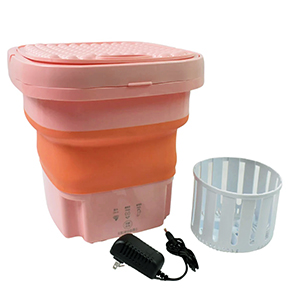The Ministry of Defence has taken a decision to replace Windows in all its internet-connected computers with a new operating system (OS) named Maya. This initiative has come amid the increasing threat of malware and ransomware attacks, which have become more frequent and severe in recent years.
The Maya OS aims to provide a robust defence against cyber threats by offering an interface and functionalities that are similar to that of Windows, ensuring a seamless transition for the users, a Defence Ministry official said.
According to the official, initially, Maya is being installed only in Defence Ministry systems. All three services -- Army, Navy and Air Force -- may start using this indigenous software by the end of this year.
The Navy has cleared it and the Army and the Air Force are evaluating it, the official added.
Maya is an operating system based on Ubuntu. Ubuntu is one of the most widely-used Linux distributions in the world and it is known for its high-level of security. The Defence Ministry has developed Maya with the help of some government agencies, including DRDO, C-DAC, and NIC.
This new operating system has the interface and all functionality like Windows. Users may not find any difficulty while using it, because there is no much difference. To begin with, the direction is to install Maya on all computers connected to the Internet in South Block before August 15, the official added.
The official said that an ‘end point detection and protection system’, Chakravyuh, is also being installed in these systems.
One of the main advantages of Maya OS is that it has a similar interface and functionality as Windows, making it easy for users to adapt to it. It also has a feature called Chakravyuh, which is an end-point anti-malware and antivirus software that creates a virtual layer between the user and the internet, blocking hackers from accessing sensitive data.
According to sources, a team of experts from various government agencies worked on Maya OS for over six months. The team also collaborated with Indian software companies and academic institutions to test and improve the OS.
Defence Ministry officials said that the idea of Maya was conceived in 2021.
In 2021, India faced many cyberattacks from foreign hackers, which targeted critical infrastructure and defence systems.
At that time, the Defence Ministry took a decision to create its own operating system that would be more secure and reliable than Windows.






3 satellite townships to be developed in Tripura: CM Manik Saha
Addressing the district level workshop on the deliberations of the 4th National Conference of Chief Secretaries at Rajarshi Hall in southern Tripura’s Udaipur, the Chief Minister said that these satellite townships would be developed in a planned manner with all basic facilities.
Assam Police foils drug peddling bid; narcotics worth Rs. 30 crore seized
Assam Police foiled a major drug peddling bid and narcotics worth Rs 30 crore were seized by the security personnel, Chief Minister Himanta Biswa Sarma said on Tuesday.
Country will prosper only when man and women enjoy equal rights: Minister Tinku Roy
The state social welfare and social education minister Tinku Roy on Tuesday chaired a daylong workshop on different schemes of his department and its execution and said that the country can prosper only if men and women enjoys equal rights.
Minister Sudhangshu Das emphasis on piggery to strengthen rural economy and generate employment opportunity
The Animal Resource Development Department minister Sudhangshu Das on Tuesday attended the state level seminar on “Pig Diseases with Special Reference to Classical Swine Fever”, held here at Agartala Rabindra Bhavan
Govt officials are driving force of Tripura’s development: CM Dr Manik Saha
Chief Minister Dr Manik Saha on Tuesday attended the District Level Workshop on the 4th National Conference of Chief Secretaries' deliberations at Rajarshi Hall, in Udaipur and said that government is committed to implementing key takeaways for the welfare of the people of Tripura.
Youth dies after being run over by train
A tragic incident unfolded once again in the D.M. Colony area under the Teliamura Railway Police Station, where a man lost his life after being run over by a train. The deceased has been identified as Ajit Sarkar, a 36-year-old resident of the locality.
Govt aims to transform state into an education hub: CM Manik Saha
Dr. Saha said this while addressing the foundation day celebration of Lipika Dasgupta Memorial School at its premises in East Gakulnagar, Bishalgarh, Sepahijala District.
Five Bangladeshi held with fake Aadhaar cards in Udaipur
The Government Railway Police (GRP) in Udaipur, Gomati district, have detained five Bangladeshi nationals with forged Aadhaar cards after they illegally entered Tripura and attempted to travel to Gujarat in search of work.